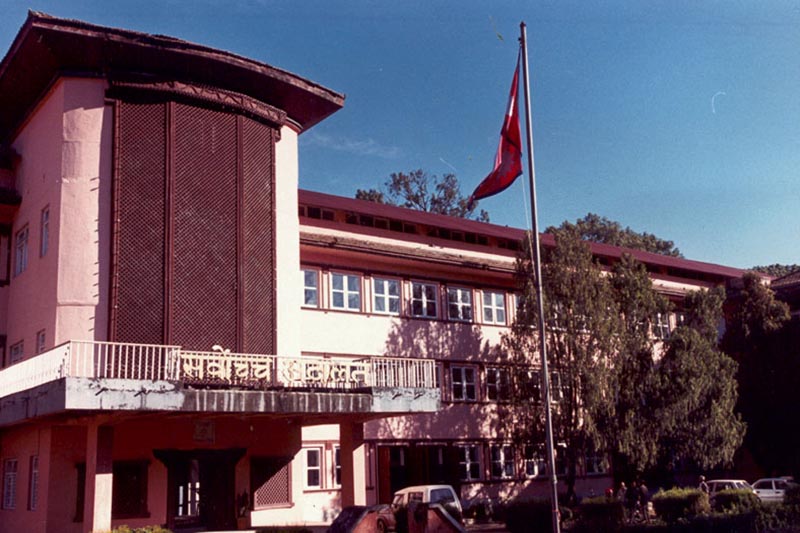SC to give verdict on ballot papers today
Kathmandu, October 17
The Supreme Court will deliver its verdict on a writ petition filed by Rastriya Janata Party-Nepal leader Sarvendranath Shukla demanding that the Election Commission should print four types of separate ballot papers for the provincial and parliamentary elections scheduled for November 26 and December 7 tomorrow.
The case was heard today in a division bench of justices Deepak Raj Joshee and Purushottam Bhandari. Lawyers representing the petitioner and defendants pleaded before the bench following which the bench decided to deliver its verdict tomorrow. The petitioner has sought stay order against the Election Commission’s decision to print only two types of ballot papers, said petitioner’s lawyer Senior Advocate Surendra Kumar Mahto.
The writ petitioner has argued that since provincial assemblies and House of Representatives are two different political bodies, separate ballot papers should be used for these elections and similarly separate ballot papers should be used for First-Past-the-Post and Proportional Representation electoral systems. The EC has decided to use two types of ballot papers — one for provincial and parliamentary FPTP elections and another for provincial and parliamentary PR elections.
Senior advocates Mahto, Chandra Kanta Gyawali and Advocate Pankaj Karna pleaded on behalf of the petitioner. Mahto argued before the bench that the House of Representatives and provincial assemblies were distinct bodies and the laws government them were also different and hence there should four types of ballot papers for the upcoming provincial and parliamentary elections. He further argued that if four types of ballot papers were not used during the elections then that could confuse voters.
“Sovereignty is vested in the citizens of the country and they use their power during elections. Therefore, the voters should know who they are voting for. If four separate and distinctive ballot papers are not used then that could violate citizens’ rights,” Mahto said.
Mahto said ballot papers should not leave any room for ambiguity or confusion but since the Election Commission had decided to use only two types of ballot papers that would be confusing for voters.
Senior Advocate Gyawali said that using separate FPTP ballot papers for House of Representative elections and provincial elections was necessary to enable voters to choose their preferred candidates.
“If voters are confused, then they cannot choose their preferred candidates and in such a situation wrong candidates could be elected,” he argued.
He said separate ballot papers would help the EC reduce percentage of invalid votes. Gyawali told THT that demanding separate ballot papers would not result in deferral of the polling date.
Shukla said he also argued in his writ petition that if only two types of ballot papers were used, and if cases were filed against one candidate, the votes of other candidates would also be exposed. This is against the rights of other candidates against whom the cases have not been filed,
he added.
Shukla also said that having only two types of ballot papers might benefit big parties, but it could harm fringe parties. “A voter may choose one party in his /her province and another party in the parliamentary elections but if we only have two types of ballot papers then the voter may get confused,” Shukla added.
He said he filed the case as the Election Commission did not act on his memorandum. “When I filed the writ petition I did not intend to delay the parliamentary and provincial elections. These elections should be held on the stipulated date,” Shukla said and added that if the EC wanted it could print four types of ballot papers now and hold the elections on the stipulated date. The government should not postpone the elections citing the reason of my writ petition, he argued.






